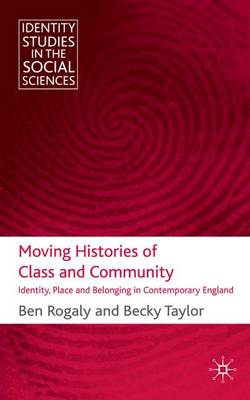Identity Studies in the Social Sciences
1 total work
White working class areas are often seen as entrenched and immobile, threatened by the arrival of newcomers, especially foreigners and people of colour. This major new study of white working class Britain since 1930 challenges accepted wisdom to provide a completely different perspective, showing how relatively small moves - as well as longer distance migration, including emigration - are suffused with emotion and can play a major role in influencing ideas of place and belonging. Based around the case study of three social housing estates in Norwich, England, over a seventy year period, and with oral histories at its heart, it also tells stories of the appropriation and resistance of state discourses of community, and of the ambivalent, complex and shifting set of class relations and identities. Material poverty has been a constant in the area throughout the period covered, but not for all residents, and being defined as 'poor' is an identity that is actively resisted.
